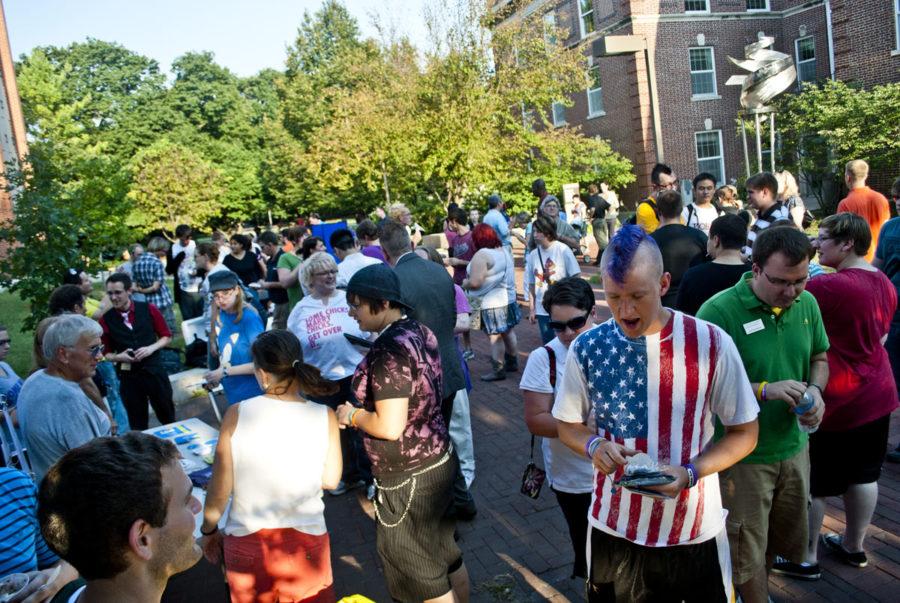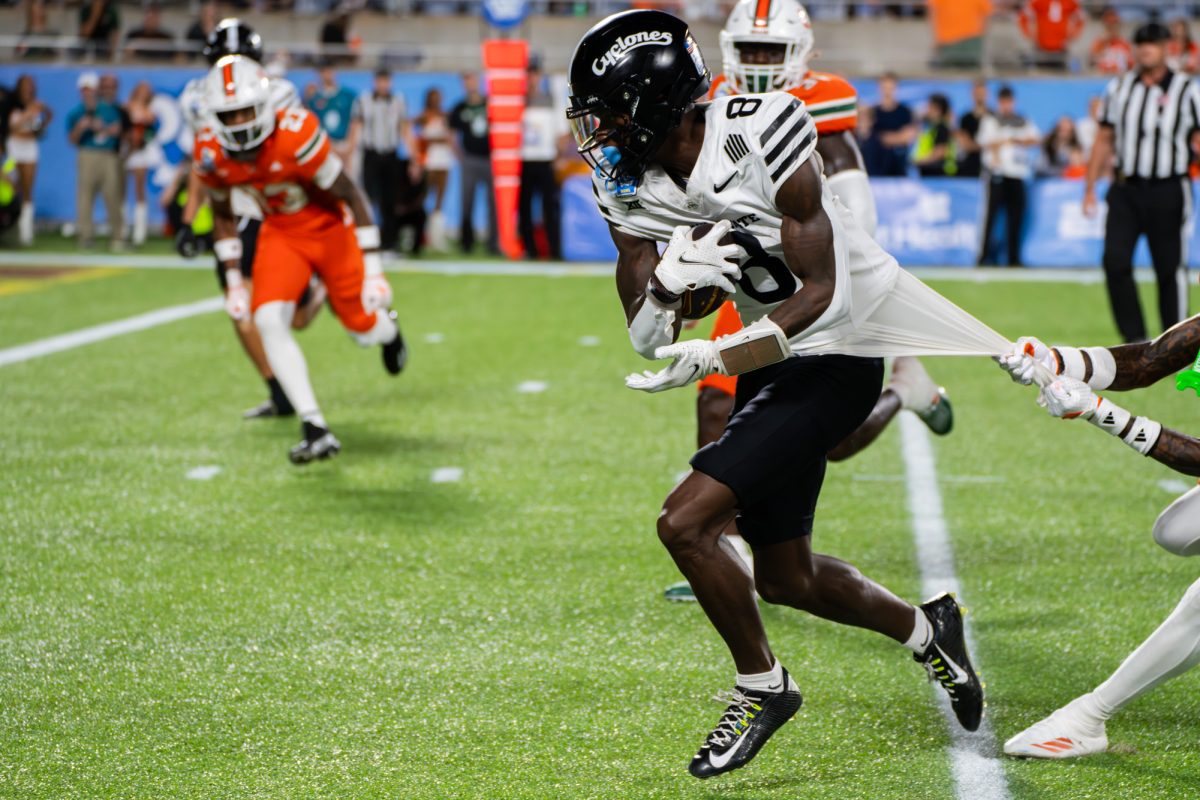Stoffa: Sexual orientation should not be a part of college applications
Photo: DJ Freesmeier/Iowa State Daily
LGBTA Alliance & Friends had an ice cream social and open house Wednesday night. Students were able to play games and visit info booths while enjoying free ice cream.
October 18, 2011
Recently, Elmhurst College in Illinois has received applause for planning to ask the question on its college applications, “Would you consider yourself to be a member of the LGBT [lesbian, gay, bisexual, transgendered] community? Yes, no, or prefer not to answer.”
LGBT advocates have been applauding Gary Rold, admissions dean for Elmhurst, as a pioneer for wanting to add the sexual orientation question to the applications.
I do not see why the question is something to be applauded.
The advantages to the question seem to be: creating lists of students eligible for LGBT scholarships, dorm assignments to make a more “comfortable” living atmosphere and increasing potential diversity of the campus through being seen as LGBT friendly.
Though all of those advantages seem positive, there are negatives attached to them.
Dorms in college tend to have a fairly random assignment overall, so making someone who is not homosexual live with someone that is could make for some awkward situations, what with the close proximity. But why should that be accommodated for?
Why should the option to live with someone more friendly to LGBT be offered when the option to live with someone more party oriented, more political, more gaming oriented, more studious, more any given thing under the sun, not be offered?
Those options are just as relevant for “comfortable” living in what are frequently the close-quarters of dorm living. And isn’t moving a gay student into a room that doesn’t have someone readily flying a rainbow flag just giving in to the unnecessary feelings of uncomfortability some folks feel toward those in the LGBT community?
Why make it easier for students to continue to avoid or even dislike someone because of their sexual orientation? Why make it less of a chance that someone unfamiliar with those leading LGBT lifestyles to be paired with someone that thinks they are uncomfortable with them and miss out on what could be a enlightening and marvelous friendship?
And why stop there? Why not ask students if they are “ginger” friendly, or if they are supportive of Islamic beliefs? Gingers aside, there are a fair number of students that would not be comfortable living with a Muslim, and should colleges make it easier for people to shun them?
Moving on, a diverse campus is a rewarding experience for most college students, and making a campus more attractive to potential students when applying for colleges is sound business sense.
But the business sense is all I can see. Diversity on a campus is a pleasant side-effect of not discriminating. If someone is gay, they shouldn’t be choosing a college because it is known for being gay friendly, they should choose a college because it offers the type of education they are looking for.
Yes, being comfortable at college is important to being successful to a degree. Yes, there are many college students that are shy or hesitant to openly declare their sexual orientation. But again, those factors are something the student needs to overcome. Those difficulties can be partially if not completely alleviated through interaction with clubs and groups that address their particular worries. If someone feels discrimination is occurring by a school, then they should file complaints accordingly.
As to scholarships, well, I will come right out and say every person — be they straight, gay or bisexual — should apply for every tuition discount or scholarship offered to those offered to the LGBT community.
You see, there are a fair number of gay men I have known that had never actually had sexual intercourse with another man, but said they were gay. This is fine. If you say you are gay, you can be gay.
That said, sex isn’t the qualifying characteristic of being homosexual or bisexual. Two girls fooling around once in college doesn’t make them gay any more than two guys doing the same thing, although society tends to declare the men as such and the women to be overlooked.
My point is anyone could end up gay or might even find the same sex appealing and never act on it. With this in mind, why not apply for those LGBT scholarships even if you have no outright intention of being with your same sex? Why should someone be denied a scholarship opportunity because they are 100 percent confident they are straight, as sexuality can take time to be noticed, even by the person in question?
I am all for LGBT people living lives free from discrimination; it makes little difference to me what they choose to do behind closed doors.
Applauding Elmhurst’s proposed sexual orientation question will also cause anxiety to some about what to answer.
“If I answer ‘no,’ will the school think I hate gays?”
“If I answer ‘prefer not to answer,’ could I be thought of as hiding my sexual orientation?”
“If I answer ‘yes,’ but do not want to come out at this point, is the school going to inadvertently pressure me into coming out or accidentally out me by putting me on a list?”
Sexual orientation has nothing to do with entering a college; for that matter neither does race or sex or age or disabilities. It is not the college’s place to offer special advantages for any person above another, all students are to be treated with equal opportunities.
The opportunities for LGBT students should be made available through listings on web pages or handouts. But it is the students’ responsibility to seek out those opportunities. Life after college will not be so kind, and coddling them through college will not make life any easier.







